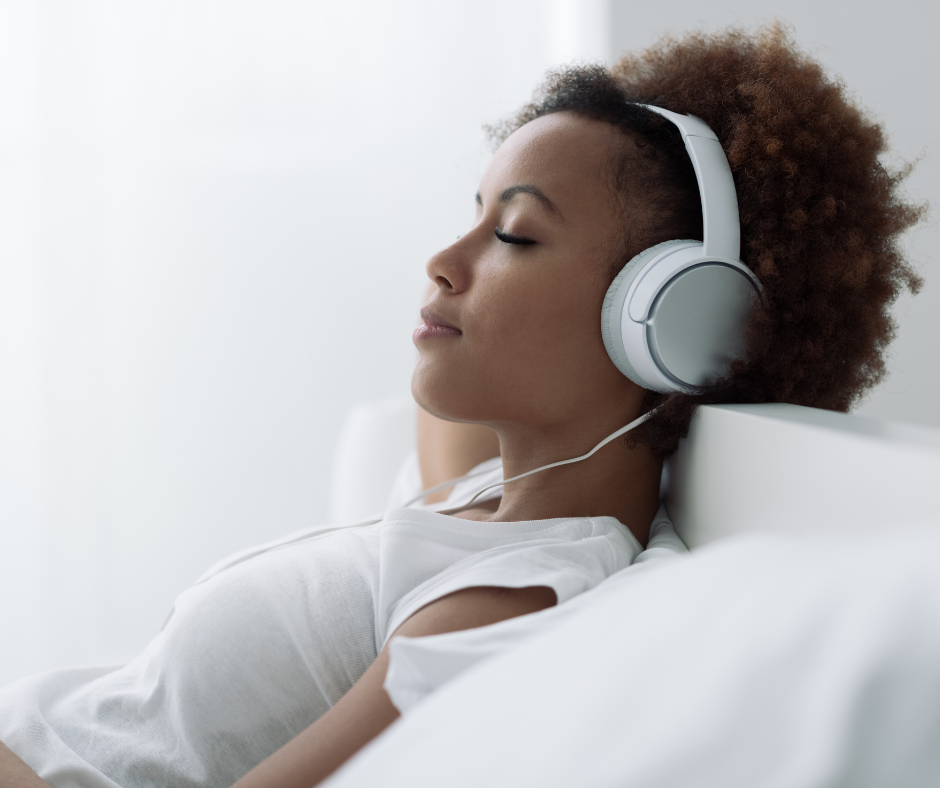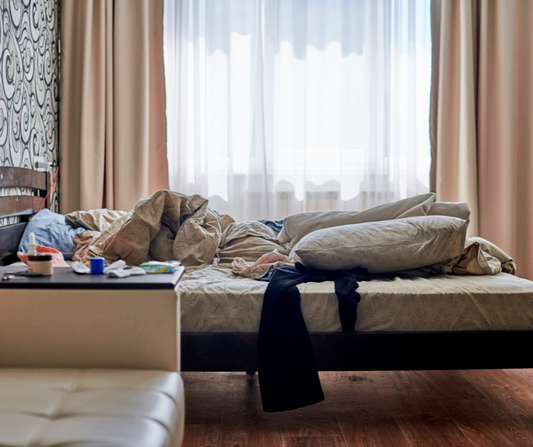From the earliest days of our lives as tiny babies, we were swaddled tightly and patted gently to the murmur of a tender lullaby as we drifted into a blissful sleep.
Experts agree that music helps infants and children fall asleep faster and sleep better. But children aren’t the only demographic who benefit from a nighttime lullaby. In fact, people across all age groups report improved sleep after listening to restful music. In one study, adults who listened to 45 minutes of music before bed reported increased sleep quality on the first night and positive results continued to increase over time!
Why? Studies suggest that music improves sleep due to its effect on hormones, including cortisol, the stress hormone. Elevated levels of cortisol increase alertness and lead to poor sleep. Because listening to music decreases cortisol levels, music aids in a good night’s sleep. Music also triggers the release of dopamine, a hormone released during pleasurable activities, which also addresses pain, another common cause of sleep issues. Music also enhances sleep by calming the autonomic nervous system, leading to slower breathing, lower heart rate, and reduced blood pressure.
What type of music should I choose for sleep?
Ideally, a sleep playlist sounds something like this:
- Soft, soothing melodies without substantial increases in volume
- Repetitive and predictable rhythms
- Minimal variations in tone or pitch
- Music with a tempo of about 60-80 beats per minute, which is about the same as an average heartbeat and is believed to support sleep.
Classical and new age music are popular choices for sleep. Avoid songs with lyrics, strong beats, or those that invoke a strong emotional reaction. For example, “Clair de Lune” by Debussy is considered a fine sleep playlist option with its slow tempo and soothing cadence. But if it’s also the piece you painfully botched at your high school piano recital in front of the entire concert hall, it’s probably not the best choice for relaxation.
Most importantly, find music that works for you regardless of the genre. If you feel genuinely relaxed while listening to a playlist, you are far more likely to build a successful sleep routine.
Ready to give it a try?
Create an evening ritual that provides your body the opportunity to wind down while incorporating music in a way that’s calming and consistent.
Try listening to your sleep playlist about 45 minutes before bed as you commence your sleep routine with gentle stretching, a warm bath, sipping herbal tea, lighting a candle, or browsing through a favorite magazine. When you go to bed, enjoy music at a quiet volume. Use care with the sound level with earbuds or headphones to prevent damage to your ears.
What have we learned?
Music improves sleep due to its effect on hormones which promotes a better night’s sleep for people of all ages. Adding a soothing playlist to your sleep routine may result in restful sleep tonight—and in the future.
Scroll down and sign up for our monthly newsletter to learn more.
Dream big, work hard, sleep ambitiously,
Joe Castignani



